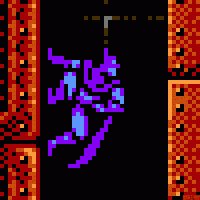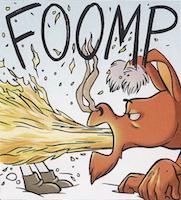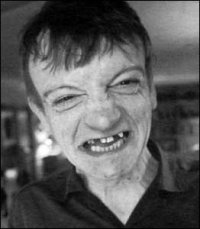An impressionistic, sure to be divisive design from Prospero Hall.
Hobby gamers, you probably aren’t going to like Prospero Hall’s take on the classic Stanley Kubrick film, The Shining. It’s too simplistic, too minimal, and it’s not anything like other popular horror board games at all. There really isn’t that much to it in terms of rules – it almost feels like a jumped-up version of some of those really stripped down Japanese games that were popular a few years ago. Nobody gets to be Jack Torrance, and it doesn’t retell the story of the ill-fated caretaker and his family.
But what Prospero Hall has done is really something unique. Rather than go the Jaws route and structure the game’s narrative around the film or take the Villainous pathway and practically soak the game in loving detail, what they’ve aimed for is almost impressionistic, which is wholly appropriate given the more internalized, interior horror of the film. It’s a game about how The Shining feels more than about The Shining itself.
This is evident in the production, which is as expected tasteful, highly stylized, and thoughtful. The box is covered with the iconic Saul Bass logo and the David Hicks carpet pattern seen throughout the film. As you open the box, you are greeted with a rulebook that looks like one of Jack’s numbingly repetitive missives. The folded board is backed with a lovely painting of the Overlook hotel. The first player token is a plastic room key tag, of course labeled for room 237. The atmosphere creeps in before you even play the game.
There are two ways to go about playing. One is a straight co-op game with the players, representing caretakers signed on to manage the Overlook apparently AFTER the events of the film. The goal is to survive 4 rounds while being psychically buffeted by the hotel’s malevolent, unseen forces. There is a “hidden traitor” mode as well, wherein one player is working at cross purposes against the players on behalf of said malevolent, unseen forces.
Each round starts off with the players dealt two cards. These are kept face-down, and they have a value range printed on the back. You don’t know what the card’s actual value is- just an idea of how high or low it could be. There’s an event card every round – some of these are wildly disorienting at first glance. You don’t expect a card covered in text to have the same direction repeated over and over again on it, but there’s that atmosphere, that Shining feeling, again. If two of the same color are drawn back to back, it ends the round giving an uncertain meter to how the game proceeds. Players move around the rooms of the hotel to gather finite Willpower tokens, which may just be numerical or they may be weapons. Whiskey is a multiplier. Do you dare risk the elevator, which requires a die roll to see if you take a hit?
When the round ends, the cards are flipped over to reveal the shocking, horrifying visions that you have seen in the hotel. I love this moment. No, you aren’t actually going to be shocked or horrified, but the process again speaks to a strong thematic sense of fear, madness, and uncertainty. I also love that the images are a combination of the visions of the past that the Torrance family witness as well as things that the Torrance family undergoes in the film. This has the neat effect of making their story part of the hotel’s larger history that you, a third party, are encountering.
If your Willpower total equals or exceeds the amount on the cards, you are stable. But if you fall below, you immediately move to and attack one of your fellow players. If you picked up Willpower tokens with weapons, they make you more dangerous as whatever tokens you have make the attack die faces with weapons deal damage. I think this is a brilliant touch- getting the high-value weapons makes you a risk. But if you move to the Hedge Maze, you might just weather the madness alone in the cold as you can’t move back into the hotel from there during this phase. If just one player loses three health, it’s game over.
With a Corrupted player in the mix, suspicion will become rife as players question why a player has moved to a specific room and how they have used that room’s function. Are they burying the better Willpower tokens? Are they wasting them because the supply is limited? Are they lying about the event card they got to preview? Only one accusation can be made per game, so you’ve got to make it count. I love that the Corrupt player can be grievously wounded and still stalk around the hotel.
This is not a game of heavy decisions or multi-faceted gameplay with interlocking mechanisms. It is not a game where the story is told in flavor text and card titles. The intent is to generate an experience that creates almost an interpretation of The Shining, cast in impressionistic details. It boils down the conflict of the narrative to a person-versus-self concept, and embeds that in the simple mechanisms of drawing tokens against an uncertain timer to beat an unknown number. Did I get enough tokens or am I going to lose it when I see the old lady in the tub or the dude in the bear suit in room 237? Am I the threat or is it my friend sitting next to me? You become part of the nightmare of the Overlook Hotel, just as Jack Torrance does.
I knew right away that this would be Prospero Hall’s most divisive game to date, and so far the comments I’ve seen online are bearing this out. I think the design is totally solid, and I appreciate the impressionistic rather than baroque style with which it approaches the subject matter. But I also get that some folks are going to bounce right off the “too easy” gameplay and they are also likely to find the game wanting for specific detail. And, perhaps, some of these detractors will read this very review and feel like I am excusing the lean design.
But here’s the deal. I don't think this game is as immediately arresting as Jaws or as likely to be as frequently played as Villainous. But I am much more impressed with a game that can create an atmosphere and a sense of setting with less than I am with a game that throws the kitchen sink at it. This could have been a Mansions of Madness or Betrayal at the House on the Hill kind of exercise with tons of cards, tons of tokens, miniatures of all the characters, and so on. But it also doesn't need any of that to create its own unique take on The Shining. I think it’s just a tremendous idea to cast the players as “new” caretakers, feeding into and witnessing the Overlook Hotel’s legacy of tragedy – which expresses the internal themes of the film beyond the scope that most board games reach for. That’s a much more compelling, if outcome than a game that simply applies setting to mechanisms and calls it a day.
 Games
Games How to resolve AdBlock issue?
How to resolve AdBlock issue? 























